WILD EARTH OCEANIA FILM FESTIVAL 2024
Human-Nature Reconnection
How can we treat nature right and co-exist harmoniously together? This session will dive into this topic with five incredible films. From giant underwater forests to Belizean fisherfolks turning into shark researchers, this session dives into alternative ways for us to interact with wildlife.
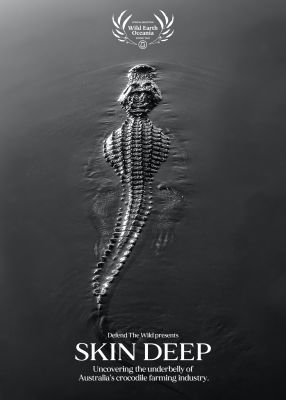
Skin Deep
Directed by Harry Vincent, Alix Livingstone, and Caitlee Wilson
Short – 19 minutes
Skin Deep dives into the experience of Donny Imberlong, a Jaru man living on the traditional lands of the Miriwoong Gajerrong people, while working on a Darwin crocodile farm in 2017. It explores his strong connection with the species, and the inner struggles that came from working in an industry that relies on killing an animal that he loves so deeply. Ultimately, the film shines a light on the current mindset behind conserving these apex predators and begs the question – can there be a better way?
SESSION TIME
Date: 23rd of January, 2024
Time: 10:00am – 12:00pm (includes 60 minutes Q&A)
Address: Bragg Theatre, The Environment Institute, University of Adelaide, North Terrace, Adelaide
This film session is appropriate for viewers above 15 years of age. Viewers under 15 years of age will require a guardian to be present.
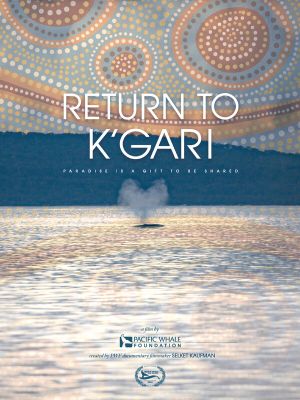
Return to K’gari
Directed by Selket Kaufman
Short – 21 minutes
Tucked away on the eastern coast of Australia lies a primeval bay where migrating South Pacific humpback whales find refuge. To sustain and grow vital noninvasive whale research, Pacific Whale Foundation (PWF) seizes this opportunity to develop a long-term study examining this population of humpback whales—where they migrate and how they use East Australia’s coastline. Today, PWF Australia’s ongoing efforts focus on the revitalization of a paradise threatened by climate change and unsustainable commercial tourism.
WILD EARTH OCEANIA FILM FESTIVAL 2024
Human-Nature Reconnection
How can we treat nature right and co-exist harmoniously together? This session will dive into this topic with five incredible films. From giant underwater forests to Belizean fisherfolks turning into shark researchers, this session dives into alternative ways for us to interact with wildlife.
SESSION TIME
Date: 23rd of January, 2024
Time: 10:00am – 12:00pm (includes 60 minutes Q&A)
Address: Bragg Theatre, University of Adelaide, North Terrace, Adelaide
This film session is appropriate for viewers above 15 years of age. Viewers under 15 years of age will require a guardian to be present.

Skin Deep
Directed by Harry Vincent, Alix Livingstone, and Caitlee Wilson
Short – 19 minutes
Skin Deep dives into the experience of Donny Imberlong, a Jaru man living on the traditional lands of the Miriwoong Gajerrong people, while working on a Darwin crocodile farm in 2017. It explores his strong connection with the species, and the inner struggles that came from working in an industry that relies on killing an animal that he loves so deeply. Ultimately, the film shines a light on the current mindset behind conserving these apex predators and begs the question – can there be a better way?

Return to K’gari
Directed by Selket Kaufman
Short – 21 minutes
Tucked away on the eastern coast of Australia lies a primeval bay where migrating South Pacific humpback whales find refuge. To sustain and grow vital noninvasive whale research, Pacific Whale Foundation (PWF) seizes this opportunity to develop a long-term study examining this population of humpback whales—where they migrate and how they use East Australia’s coastline. Today, PWF Australia’s ongoing efforts focus on the revitalization of a paradise threatened by climate change and unsustainable commercial tourism.
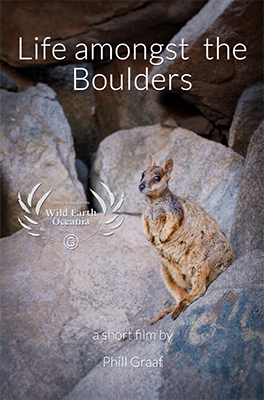
Life amongst the Boulders
Directed and Produced
by Phillip Frederic Graaf
Micro short – 5 minutes
With his short film “Life amongst the Boulders”, which was shot and edited in three days, filmmaker Phill Graaf takes you on a little journey to the beautiful Magnetic Island. The Wallabies here live in a little Paradise…
But humans might actually be threatening them unknowingly. Narrated by Michael Klekar, the film invites you to immerse yourself for one day in the life of the wallabies, who are – despite being nocturnal animals – quite active during the day.
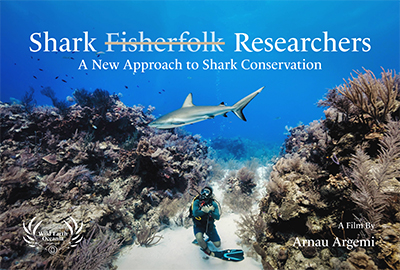
Shark Researchers: A New Approach to Shark Conservation
Directed by Arnau Argemi Gonzalez
Micro short – 3 minutes
Coastal communities in Belize have traditionally relied heavily on shark fishing for their livelihood. However, this practice puts the conservation of shark populations at risk. While banning shark fishing could endanger the livelihoods of thousands, Global FinPrint offers a solution. Their innovative approach aims to safeguard both sharks and the well-being of Belizean coastal communities. Discover in this short film how shark fisherfolk can transition to new livelihoods, becoming vital champions for shark conservation.
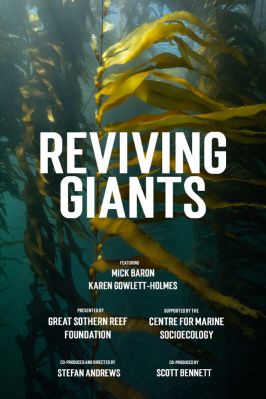
Reviving Giants
Directed & Produced by Stefan Andrews
Short – 9 minutes
Mick Baron and Karen Gowlett-Holmes have been running the Eaglehawk Dive Centre on the iconic Tasman Peninsula since 1991. For decades one of the major attractions to the area has been the giant kelp forests. But over the years they have seen first hand the destruction of the giant kelp forests, a direct result of climate change.
Dependent on Tasmania’s giant kelp forests more than anyone, Mick and Karen have been instrumental in the efforts to research and rehabilitate these critically endangered ecosystems. With word spreading about restoration efforts, now the dive centre is increasingly receiving requests for people interested in diving on the restored reefs.
In this short film, Mick and Karen take you on a journey through the day in the life of these highly accomplished Tasmanian dive shop owners. The film explores their personal reflections on the dramatic changes observed in the giant kelp forests within their lifetimes and their ongoing efforts to raise awareness to the issue and gain traction in the rehabilitation of these reefs.


